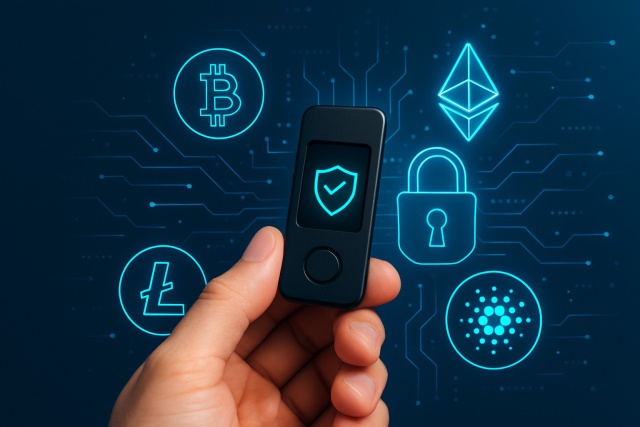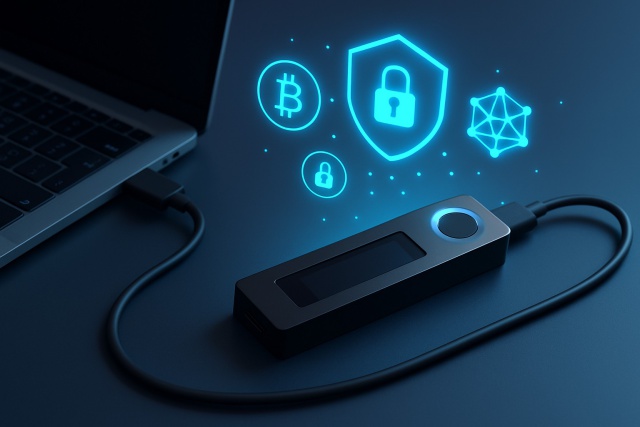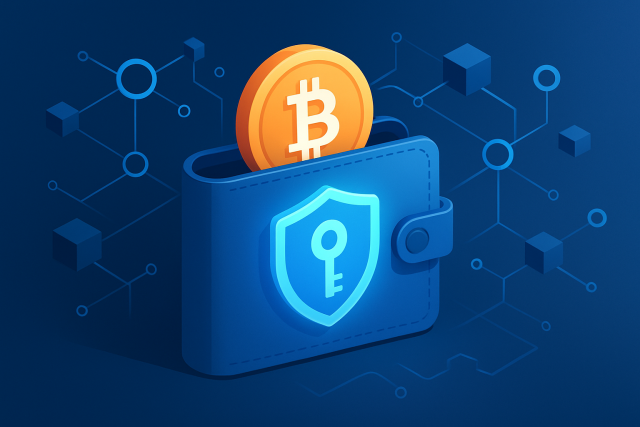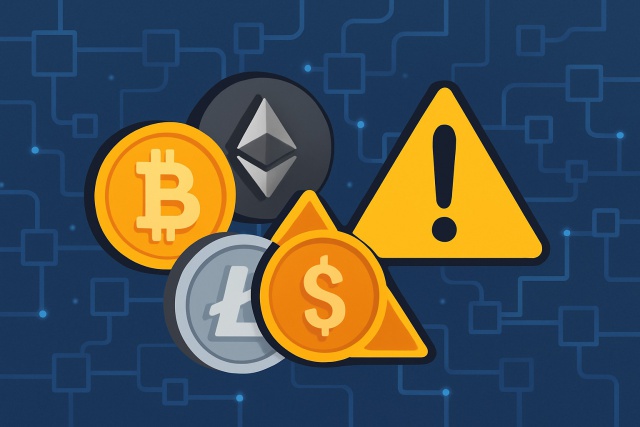Crypto Wallets Safety Risks and How To Avoid Them?

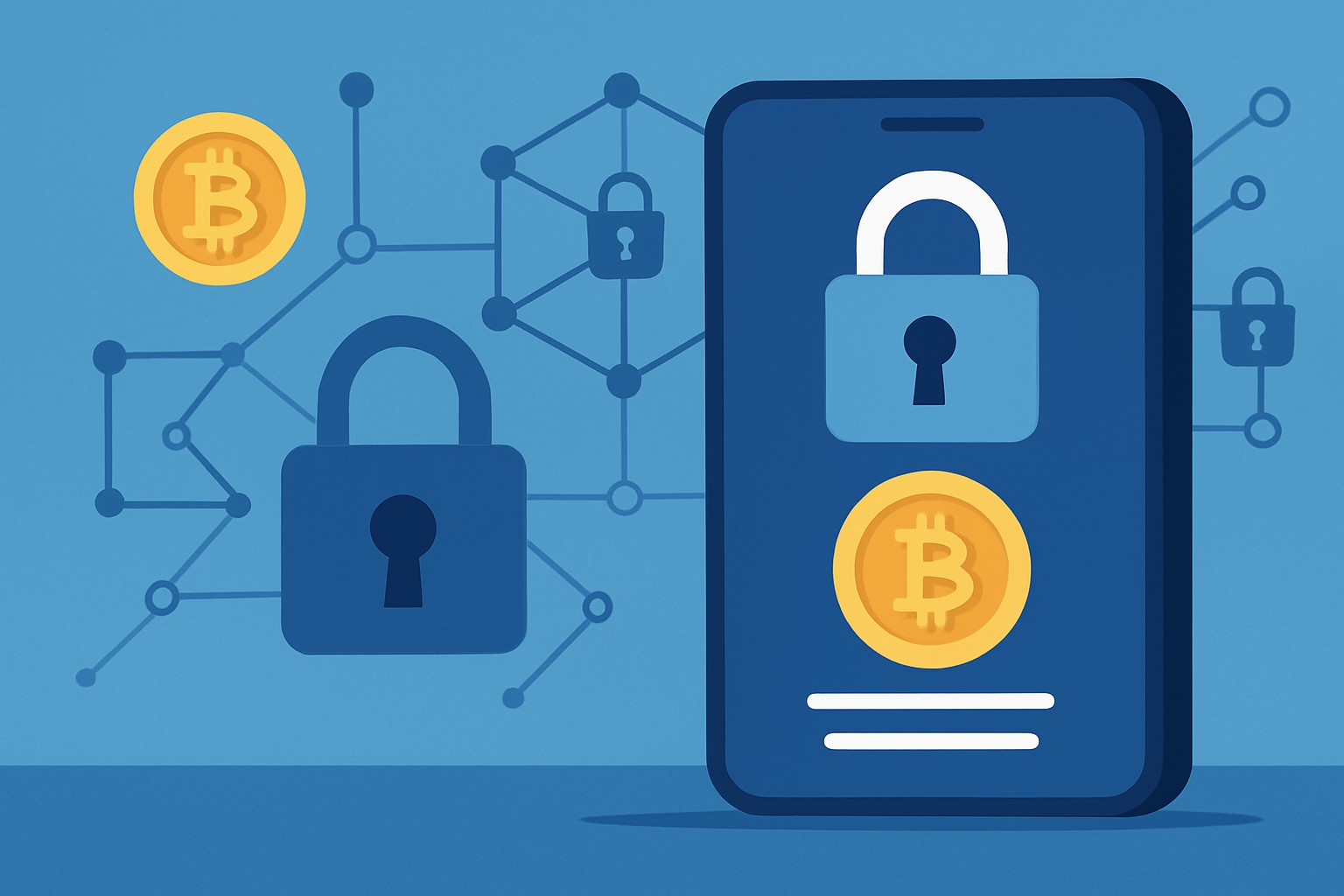
Crypto wallets serve as essential gateways for accessing and managing your digital treasures like Bitcoin, Ethereum and many altcoins. Think of them as the trusty vaults holding your private keys—the vital secrets you need to sign off on transactions across blockchain networks. Since crypto transactions are permanent and often carry serious value, keeping these wallets locked down tight is no joke.
So, What Exactly Are Crypto Wallets Anyway
Crypto wallets are your go-to digital sidekicks that hold your private and public keys so you can send, receive and manage cryptocurrencies without breaking a sweat. They come in a few flavors. Hot wallets are always online, like the handy software and mobile apps you probably use daily. Cold wallets keep your keys offline and cozy, including hardware gadgets and even good old paper wallets.
Pros of Crypto Wallets That Make Them Tick and Shine
Crypto wallets bring many handy advantages that make managing digital assets both doable and secure. They put users firmly in control of their funds and provide strong protection for private keys. Plus, they usually offer better privacy than traditional financial systems, which is a nice bonus. On top of that, crypto wallets vary in ease of use from convenient online options to locked-down offline choices.
- Crypto wallets keep your private keys under lock and key, and you’ll need these to both access and approve any cryptocurrency transactions.
- Hot wallets provide quick and easy access to your funds, making them a solid pick for those who like to trade or pay frequently without fuss.
- Cold wallets store keys offline, a clever way to shield them from the pesky risks of online hacking.
- Many wallets come loaded with stronger privacy features that help keep just how much personal info you share on blockchain networks to a minimum.
- Support for multiple cryptocurrencies means you can smoothly juggle a variety of digital assets without breaking a sweat.
- Backup options like seed phrases act as your safety net, letting you restore your wallet even if your device pulls a disappearing act.
Downsides of Crypto Wallets and Safety Concerns You Should Keep in Mind
Crypto wallets are essential in the crypto world but they come with security headaches and quirks. Users who aren’t up to speed or use poorly designed wallets can lose funds to malware, phishing scams, hardware hiccups or everyday slip-ups. Some wallet varieties depend on centralized custodians which opens the door to additional weak spots.
- Phishing and malware attacks often sneak up on users, tricking them into handing over private keys or seed phrases. This opens the door wide for theft.
- Misplacing or losing your private keys or seed phrases usually means you’re locked out of your funds for good. There are no do-overs here.
- Hardware wallets tend to be pretty solid, but they’re not invincible. Physical damage or firmware hiccups can happen so a little TLC goes a long way.
- Slip-ups like sending assets to the wrong address or falling for scams can lead to losses that are almost impossible to undo. Ouch.
- Relying on centralized custodians causes headaches ranging from hacks to regulatory crackdowns or insolvency.
- Social engineering attacks trick users into giving away sensitive wallet info without a second thought.
- Many wallets offer minimal or zero recovery options if credentials vanish, often leaving you with nothing but regret and permanent loss of assets.
Comparing Various Crypto Wallets Finding That Sweet Spot Between Security and User-Friendliness
Different types of crypto wallets tackle security and convenience in their own ways. Hardware wallets keep your keys offline offering rock-solid security but require an upfront purchase and some care to use properly. Software wallets run on desktops or phones and are user-friendly but tend to increase online risks. Web wallets make accessing your funds easy but rely on servers so there is always a possibility of vulnerabilities. Paper wallets store keys offline simply and safely but are easy to lose or damage if you are not careful.
| Wallet Type | Security Level | Ease of Use | Risk Factors | Backup/Recovery Options | Typical Use Cases |
|---|---|---|---|---|---|
| Hardware Wallets | Very high | Moderate | The usual suspects: physical loss, accidental damage, or a cranky firmware | Seed phrase backup | Perfect for stashing away large sums and planning for the long haul |
| Software Wallets | Moderate | Easy to use | Watch out for malware, sneaky phishing attempts, or device hacks that love to lurk | Encrypted backups | Great for everyday trading and juggling frequent transactions |
| Mobile Wallets | Moderate | Very easy | Prone to mobile malware or the classic lost-or-stolen phone scenario | Seed phrase backup | Perfect sidekick for quick payments and trades when you’re on the move |
| Web Wallets | Low to moderate | Very easy | Risks include attacks on centralized servers and phishing traps that never rest | Backup depends on provider | Handy for quick access and holding small amounts without fuss |
| Paper Wallets | High (offline) | Difficult | Fragile little things that can be damaged, lost, or swiped in a heartbeat | Must be kept physically safe | Mostly used for cold storage or as backup copies stashed away carefully |
How to Minimize Safety Risks When Using Crypto Wallets Without Losing Your Mind
To keep risks at bay and protect your cryptocurrency stash, users should stick to a handful of security best practices. This usually means opting for hardware wallets when dealing with larger sums and turning on extra layers of protection like two-factor authentication. Make sure your wallet software is always up to date and back up your private keys in a safe spot. Watch out for sneaky phishing attempts and never share sensitive info to lock down your assets.
Store large chunks of cryptocurrency offline using hardware wallets like Ledger or Trezor. This method is one of the best ways to keep hackers at bay.
Enable two-factor authentication for your software and web wallets as an extra layer of security like adding another lock to your front door.
Keep your wallet software and firmware updated regularly. Fix any vulnerabilities promptly to avoid risks.
Back up your private keys or seed phrases offline and store them in secure places where others can’t access them. Avoid keeping digital copies hackers could discover.
Never share your private keys or seed phrases with anyone no matter how convincing they claim to be from support.
Stay alert to phishing attempts by double-checking URLs and avoiding suspicious links. Only trust sources you know well.
Keep your cold wallets offline except when you absolutely need to sign transactions. This is like keeping your valuables locked up until you need them.
New Technologies and Trends That Are Quietly Revolutionizing Crypto Wallet Security
Innovations such as multi-signature wallets and biometric authentication are shaking up crypto wallet security. Decentralized key management platforms and social recovery mechanisms also play a big role.
These technologies in crypto wallets definitely offer stronger protection but also add complexity and new vulnerabilities. Multi-signature wallets require multiple approvals. This can make the user experience feel like a waiting game and sometimes slow down access more than you would like. Biometric systems might be clever but are not foolproof because they can fall prey to spoofing and raise privacy concerns. Decentralized key management spreads responsibility, which sounds great in theory but can feel like a labyrinth for the average user to navigate. Social recovery methods rely heavily on trusted friends or family and naturally raise trust issues along with the risk of people conspiring.
Frequently Asked Questions
What’s the safest type of crypto wallet for long-term storage?
Hardware wallets (cold wallets) like Ledger or Trezor are usually the safest choice for long-term storage because they keep your private keys offline. This reduces the chances of hacking significantly. Pairing them with a seed phrase backup stored somewhere physical and secure like a trusty safe or a safety deposit box adds an extra layer of peace of mind.
Can I recover my crypto if I lose my hardware wallet?
Yes, as long as you have your seed phrase backed up. This phrase, typically 12 to 24 words, acts like a secret handshake to your funds. It is your golden ticket to restoring access on a new device. Without it you’re pretty much locked out so keeping that seed phrase safe is very important.
Are mobile wallets unsafe due to internet connectivity?
Mobile wallets (hot wallets) are definitely convenient but come with more risks since they’re always online. It’s like leaving your front door unlocked because you’re in a rush. You can reduce those risks by choosing wallets with strong encryption and enabling two-factor authentication. Avoid storing large sums there. For significant amounts it’s smarter to keep your funds in a hardware wallet instead.
How do I spot a phishing scam targeting my wallet?
Phishing scams often disguise themselves as legitimate sources through fake emails, bogus websites or suspicious apps that try to trick you. A good rule is to always double-check URLs and avoid clicking unexpected links. Never type your seed phrase online. Legitimate wallet providers will never ask for sensitive information out of the blue.
What’s the biggest mistake people make with crypto wallets?
One common mistake is not backing up seed phrases properly or worse saving them digitally in screenshots or cloud notes. That’s like leaving your front door key under the welcome mat. If your device is lost or hacked those digital copies become an easy target for thieves. Writing your seed phrase down on paper, storing it safely and keeping it to yourself is the smarter approach.
Do multi-signature wallets really improve security?
They definitely improve security. Multi-signature wallets require multiple approvals before any transaction goes through which spreads out the risk. This way one person’s error won’t cause major problems. They work well for shared accounts or high-value assets. However setting them up can feel a bit like assembling IKEA furniture for beginners. Ultimately it’s about balancing strong security with ease of use that suits your personal style.


